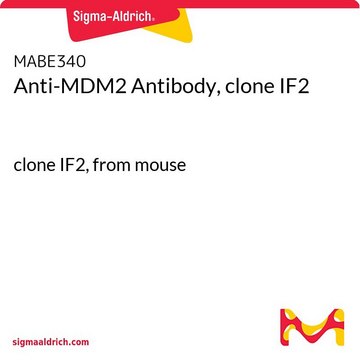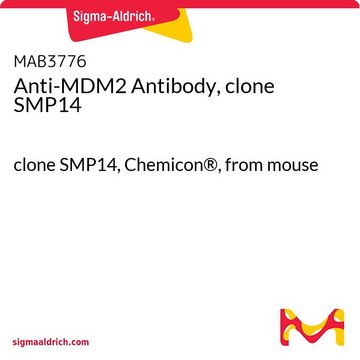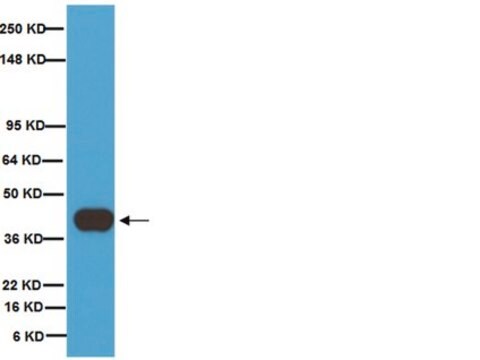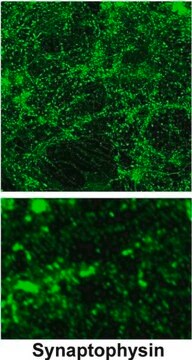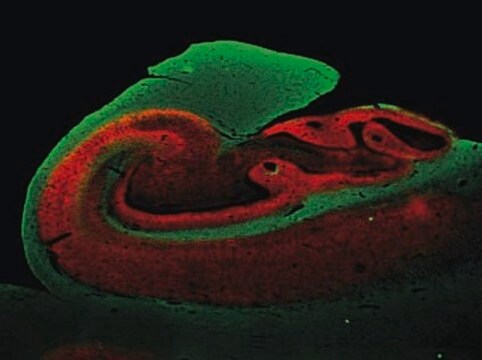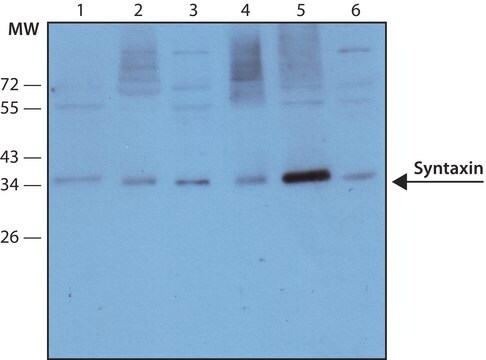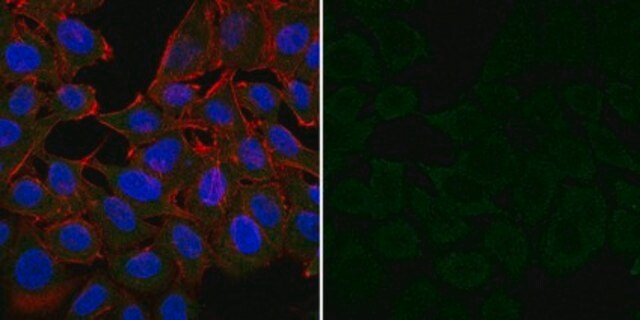MABE331
Anti-MDM2 Antibody, clone 4B2C1.11
clone 4B2C1.11, from mouse
Synonym(e):
E3 ubiquitin-protein ligase Mdm2, Double minute 2 protein, Hdm2, Oncoprotein Mdm2, p53-binding protein Mdm2
About This Item
Empfohlene Produkte
Biologische Quelle
mouse
Qualitätsniveau
Antikörperform
purified immunoglobulin
Antikörper-Produkttyp
primary antibodies
Klon
4B2C1.11, monoclonal
Speziesreaktivität
human, mouse
Methode(n)
immunocytochemistry: suitable
immunoprecipitation (IP): suitable
western blot: suitable
Isotyp
IgG1κ
NCBI-Hinterlegungsnummer
UniProt-Hinterlegungsnummer
Versandbedingung
wet ice
Posttranslationale Modifikation Target
unmodified
Angaben zum Gen
human ... MDM2(4193)
mouse ... Mdm2(17246)
Allgemeine Beschreibung
Immunogen
Anwendung
Epigenetik & nukleäre Funktionen
Zellzyklus, DNA-Replikation & -Reparatur
Immunocytochemistry Analysis: A representative lot from an independent laboratory detected MDM2 in SV5-tagged, fusion p53-EGFP transfected H1299 cells (Hjerpe, R., et al. (2010). 42(5):725-735.).
Qualität
Western Blot Analysis: 0.25 µg/mL of this antibody detected MDM2 in 10 µg of mouse brain tissue lysate.
Zielbeschreibung
Physikalische Form
Lagerung und Haltbarkeit
Hinweis zur Analyse
Mouse brain tissue lysate
Sonstige Hinweise
Haftungsausschluss
Sie haben nicht das passende Produkt gefunden?
Probieren Sie unser Produkt-Auswahlhilfe. aus.
Empfehlung
Lagerklassenschlüssel
12 - Non Combustible Liquids
WGK
WGK 1
Flammpunkt (°F)
Not applicable
Flammpunkt (°C)
Not applicable
Analysenzertifikate (COA)
Suchen Sie nach Analysenzertifikate (COA), indem Sie die Lot-/Chargennummer des Produkts eingeben. Lot- und Chargennummern sind auf dem Produktetikett hinter den Wörtern ‘Lot’ oder ‘Batch’ (Lot oder Charge) zu finden.
Besitzen Sie dieses Produkt bereits?
In der Dokumentenbibliothek finden Sie die Dokumentation zu den Produkten, die Sie kürzlich erworben haben.
Unser Team von Wissenschaftlern verfügt über Erfahrung in allen Forschungsbereichen einschließlich Life Science, Materialwissenschaften, chemischer Synthese, Chromatographie, Analytik und vielen mehr..
Setzen Sie sich mit dem technischen Dienst in Verbindung.